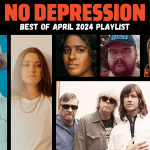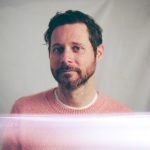Bruce Sudano on Donna Summer, Springsteen, the Zombies, and More
Bruce Sudano has been writing notable songs and playing in bands since the 1960s, but he may be more driven now than ever before.
“I’m more inspired now than any other time in my life,” says Sudano, who co-wrote a hit at age 20 with Tommy James and wrote songs for Donna Summer before marrying her in 1980. “I feel like I have another chapter of my life to live, and I’m taking on the challenge very seriously. I continue to fine tune who I am as an artist, and I’m hopeful that the next records will be even more focused, honest, and relevant.”
Sudano was born in Flatbush, Brooklyn, in 1948, and learned to play accordion, guitar, and piano at an early age. He wasn’t a fan during the 1950s of the borough’s heroes — the Brooklyn Dodgers — or their center fielder Duke Snider, affectionately called the Duke of Flatbush. The Dodgers left their small, legendary stadium, Ebbets Field, after the 1957 season and moved to Los Angeles.
“By the time I was at an age old enough to go to games, Ebbets Field was gone, so I was more of a Mets fan,” he recalls. “In those days, Flatbush was a neighborhood filled with kids and, in the ’60s, with the Beatles, Stones, and Dylan driving the culture, many of those kids turned to music. We all went in and out of bands learning our craft. It was a very inspirational and formative time.”
In 1968, Sudano co-founded and became the keyboard player in a pop rock group Alive ‘N Kickin.
“Alive ‘N Kickin’ evolved from those neighborhood bands,” says Sudano, who last year joined with the Candyman Band to release the Burbank Sessions. “I met Pepe Cardona, the lead singer, when he was singing for a different band that my father was managing. When he left that group, we decided to team up. Then we found Sandy Toder, the female singer; drummer Ronnie Pell; bass player Woody Wilson, and guitarist Johnny Parisio. They were guys from the neighborhood that we’d been playing with for years. We were called the Fifth Prophesy before we changed the name to Alive ‘N Kickin’. The experience showed me that — with passion and hard work — dreams can come true.
Sudano met Tommy James while playing at a New York club, and they penned “Ball of Fire,” one of many hits for Tommy James and the Shondells. James and Bob King co-wrote “Tighter, Tighter” for Alive ’N Kickin’, and, with James producing and singing backing vocals, the catchy pop song on Roulette Records reached No. 7 on the Billboard chart.
“I met Tommy when he came to see us play,” Sudano recalls. “We were the house band in a club called The Cheetah on 52nd Street, and our manager brought him down. At the time, he was living around the corner on Eighth Avenue, so Woody Wilson and I would go over to his apartment on breaks and, eventually, started writing with him. He was at the top of the charts then. I was young and naive but with a great desire to be a songwriter. He was extremely generous and gracious by basically taking me under his wing and giving me the opportunity to learn from him as a writer and a producer. He opened the door to the music business for me. He was my mentor and remains a friend to this day.”
Sudano left Alive ’N Kickin’, moved to the West Coast and became a folk artist before moving back to Brooklyn in 1973. He began playing with Joe Esposito and Eddie Hokenson, and they traveled to Los Angeles where a new band, Brooklyn Dreams, took shape.
“Joe, Eddie, and I went out to L.A. in 1976 with no intention of forming a group,” Sudano says. “We were good friends who had played in bands together in New York, but we were all chasing solo careers when we went out there. Susan Munao, another friend from Brooklyn and the publicity director at Casablanca Records, recognized the chemistry we had and suggested we form the group. We did the first of our four albums in 1977 and broke up in 1980. We accomplished a lot in that time. We did all the popular TV shows, toured, appeared in and wrote for movies, co-wrote ‘Bad Girls’ with Donna, and had a hit with her, “Heaven Knows.” It was definitely a highlight time, because we were at the center of the musical wave that was peaking in that period.”
Sudano met Donna Summer, the “Queen of Disco,” in 1977. Summer recorded on Casablanca Records, which distributed Sudano’s Millennium Records, and the two married in 1980. Sudano became her manager and played keyboards and sang backing vocals in her touring band. The couple had two daughters and raised another daughter from Summer’s first marriage. Summer died in 2012.
“I view Donna as one of the greatest of all time,” Sudano says. “She was an innovator — always pushing the envelope and never settling. As an artist, she always fought to maintain integrity. She was a triple threat — an awesome songwriter, an amazing singer, and a great entertainer. They’re aren’t many who can do those three on the level that she did them — all with a real sense of style, grace, and humility. I think she will continue to inspire for a long, long time.”
Did his relationship hinder his own music?
“I don’t think there was any harm,” Sudano says. “The relationship was very simpatico and supportive of each other’s gifting. I certainly benefitted greatly from her talent, wisdom, and generosity, and had the opportunity to work with many of the best writers and producers in the business. I’m sure it all plays a part in who I am today and what I’m doing now. It was a great blessing, because, although in some context I’m a relatively new solo artist, there’s all this experience that’s been absorbed into my system.”
Sudano released his first solo album, The Fugitive Kind, on RCA in 1981. A song that he co-wrote with Summer, “Starting Over Again” was recorded by Dolly Parton and jumped to No. 1 on the country charts.
Sudano’s next solo album, Rainy Day Soul, was released in 2004. Life and the Romantic followed in 2010, and then With Angels on a Carousel was released in 2014 and the Burbank Sessions last year. The way the Burbank Sessions was recorded, Sudano says, is the biggest difference between it and his previous solo albums.
“Usually, I would work on a record over a period of months, writing, recording, fine tuning, overdubbing, and mixing. The songs for this record were written last year while I was out on the road, and I incorporated them into the set as we went along. Then, as soon as the tour was finished, I went into the studio with the band and recorded them over two days and mixed them. So, it was a very quick process, and — because we had been playing the songs live — it gave the band more freedom and room to breathe, and the record a more spontaneous feel.”
“A spontaneous feel” has long been one of the hallmarks of Bruce Springsteen and his music. Sudano says the best concert he ever attended as a spectator — and the one that most influenced him as a musician — was a Springsteen show at a small nightclub, New York’s Bottom Line, in August 1975. Springsteen did a five-night stand at the club with an early and a late show each night, and the widely publicized shows, as well as the release of Born to Run eight days later, helped propel him to superstardom. Two months after the Bottom Line stint, Springsteen became the first rock star to appear on the covers of Time and Newsweek in the same week.
“It was a small venue, great songs, and a powerful performance,” Sudano recalls. “It completely inspired me and gave me something to aspire to.”
In May, Sudano played some dates with the Zombies, and he plans to play more shows with the influential 1960s British band next month.
“It’s a pleasure and an honor touring with them,” says Sudano, who also warmed up for the Zombies in 2014. “It’s easy, and it’s fun, because everybody’s a professional. And though we’re musically somewhat different, it’s still very compatible for the audience, because we both approach it with the truth of a rock ’n’ roll heart.”




